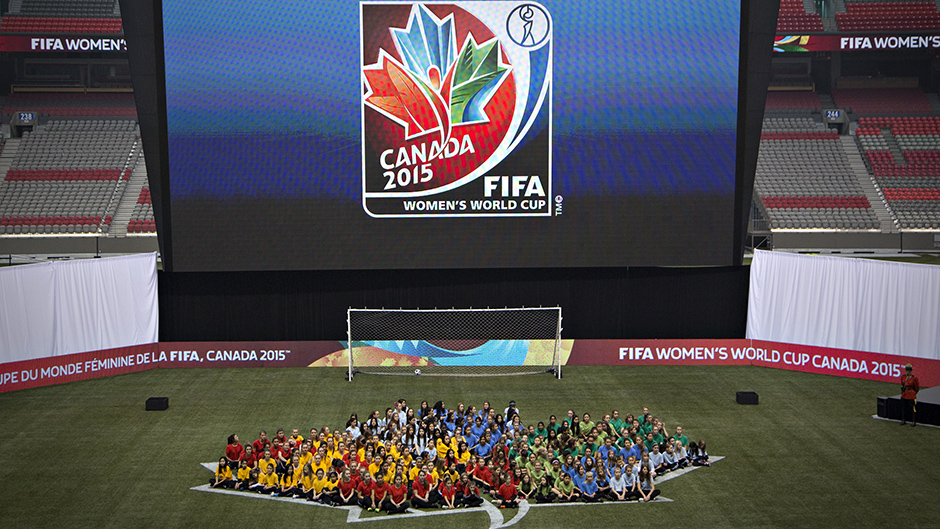By Andrew Warshaw
August 7 – The decision to use artificial turf for next year’s Women’s World Cup is developing into a major row with some of the world’s leading players now even suggesting the move violates their human rights.
Former England women’s captain Faye White added her voice earlier this week to the campaign for natural grass and the spat has been stepped up just as Canada – host nation for the tournament – gets into its stride staging the under-20 version.
Players and coaches believe there is a higher risk of injury on artificial turf and that it causes more wear and tear on the body.
Details have now emerged of a three-page letter dated July 28 and sent to both FIFA and the Canadian Soccer Association by lawyers representing players from Germany, Brazil, Mexico, Spain, the United States, New Zealand and Costa Rica, among others.
“The proposal is discriminatory and violates Canadian law,” the letter states. “If your organisations will not engage in a meaningful dialogue on how to correct the discriminatory treatment of women players, we are prepared to pursue legal action which we are confident should succeed.”
A FIFA spokesman confirmed the letter had been received, but declined to comment as did the Canadian Soccer Association.
In the letter, the players, who include Abby Wambach of the United States and Germany’s Nadine Angerer – FIFA players of the year for 2012 and 2013 respectively and among 40 internationals who have signed a petition – said they can suggest “affordable ways” to host the tournament on grass in the six cities being used: Vancouver, Edmonton, Winnipeg, Ottawa, Montreal and Moncton.
The letter, made public by women’s soccer publication The Equalizer, is understood to describe artificial turf as “a second class surface” and says its use “is gender discrimination that violates European charters and numerous provisions of Canadian law, including human rights codes and the Canadian Charter of Rights and Freedoms.”
“It’s forcing women to compete under different conditions than comparable male players would compete under,” Catherine Gleason-Mercier, an associate with Osler, Hoskin & Harcourt LLP, a Canadian firm representing the group, was quoted as saying. “That in and of itself is an unfair discrimination based on gender.”
Another of the lawyers, Hampton Dellinger of Boies, Schiller & Flexner in Washington, said that while all legal avenues will be pursued, a boycott was not being considered.
“Canada has very robust human rights statutes, both the provincial codes and the national charter, that ban discrimination based on gender, and I don’t think there can be any question but that this relegation of women to a second-class surface is based on gender,” Dellinger was quoted as saying.
FieldTurf, the surface being used next year, is rated as the best in the business by FIFA and is used by several US soccer teams. FIFA President Sepp Blatter insists the surface is not inferior and players just need more time to get used to it.
“This is for the future,” he told reporters before the start of the under-20 event. Players and coaches who were not used to the surface may say “it’s not good. But it is good,” he said.
Even Canada’s minister for the status of women has been drawn into the debate, denouncing criticism of artificial turf as misplaced.
“The Toronto FC, Montreal Impact, and Vancouver Whitecaps have all played on artificial turf … Thousands of professional athletes play on these high-tech surfaces on a daily basis,” Kellie Leitch wrote in an email to the National Post .
“In short, while some of these players might prefer a grass surface, to say that playing on artificial turf is ‘second-class’ and constitutes ‘gender discrimination’ is not appropriate.”
Contact the writer of this story at moc.l1745023916labto1745023916ofdlr1745023916owedi1745023916sni@w1745023916ahsra1745023916w.wer1745023916dna1745023916

